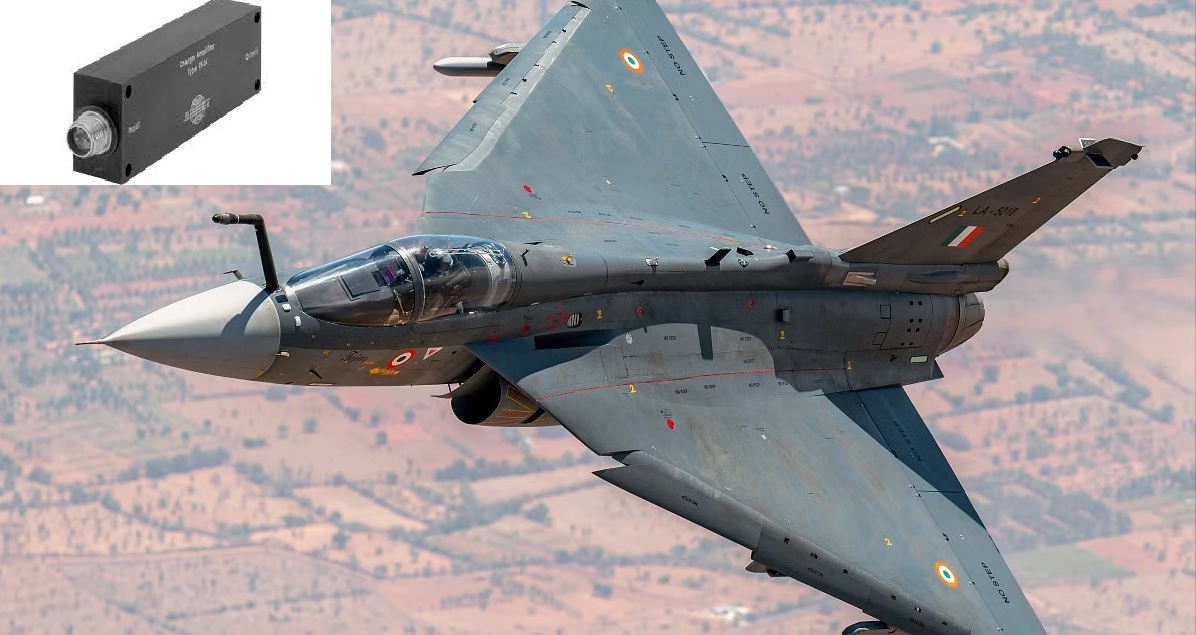TEJAS MK-1A Fighter Jet Delivery Delayed by Danish Export Blacklist: HAL’s Race to Indigenize Critical Component

The delivery of India's TEJAS MK-1A fighter jets is facing further setbacks, as a key component—an engine charge amplifier sourced from Denmark—has been placed on an export blacklist by Danish authorities. This complication comes on top of an existing delay caused by the late delivery of engines from General Electric (GE) and software refinements that have taken longer than anticipated.
The engine charge amplifier, though a relatively small component, plays a vital role in the operation of the aircraft. It measures the temperature of the engine and regulates its performance accordingly, ensuring that the engine functions optimally under different conditions. In the case of the TEJAS MK-1A, these amplifiers were originally imported from Denmark. However, as Denmark has imposed export restrictions—likely linked to the ongoing Russia-Ukraine conflict—the component’s availability has become a major bottleneck.
India’s Ministry of Defence has taken up the issue through diplomatic channels, hoping to resolve the matter with the Danish government. However, Hindustan Aeronautics Limited (HAL), which is responsible for producing the Tejas jets, has already initiated efforts to indigenize the charge amplifier. A Bangalore-based company has been contracted to develop the component locally. According to sources, this firm is nearing completion of the development, and HAL will soon begin testing. Once testing is successful, mass production will follow.
While HAL’s indigenization efforts offer hope, the delay caused by the Danish export restrictions compounds other challenges in delivering the 83 TEJAS MK-1A jets contracted by the Indian Air Force (IAF). HAL signed the contract in 2021, with the first aircraft originally expected to be delivered in March 2023, followed by 16 jets each year. However, no aircraft has been delivered to date. Even before the Danish issue emerged, there were delays due to GE’s failure to deliver the F404-IN20 engines on time.
The engines are another critical factor in the delay. GE, the supplier of the engines, has assured the Indian government that it will begin delivering two engines per month starting in November 2024, after a discussion between India’s Defence Minister Rajnath Singh and US officials during his visit to Washington in August. GE attributed the delays to global supply chain issues, as well as the time required for certifying new vendors and ensuring parts meet rigorous testing standards.
Software changes have also played a role in slowing the aircraft’s rollout. The Israeli-made avionics systems installed in the TEJAS MK-1A required certain modifications, further stretching the timeline for delivery. Despite these setbacks, HAL is optimistic that with the indigenization of the charge amplifiers and the resumption of engine deliveries, they can meet revised deadlines for the jets.
The hope now is that the first TEJAS MK-1A will be delivered by the end of October or November 2024. HAL expects that the indigenization process for the charge amplifiers will be completed soon, with the initial batch of aircraft potentially utilizing some amplifiers imported under the earlier Danish contract.
The TEJAS MK-1A is a significant upgrade over the earlier variants of the Tejas fighter jet. Designed as a lightweight, multi-role aircraft, it boasts advanced radar systems, improved electronic warfare capabilities, and enhanced weapons-carrying capacity. The F404-IN20 engines powering the jet offer reliable performance, while the avionics systems provide modern targeting and mission management features.
While these delays are frustrating for the IAF, the long-term prospects for the TEJAS MK-1A remain promising. The indigenization of key components like the engine charge amplifier could help reduce future dependence on foreign suppliers, aligning with India’s broader push toward self-reliance in defense production.
As HAL works against the clock to resolve these issues, the delivery of the TEJAS MK-1A jets to the IAF is expected to move forward in the coming months, provided there are no further complications in the supply chain or regulatory approvals. For now, the focus remains on overcoming the challenges posed by the Danish export restrictions and ensuring that the fighter jets are ready to bolster India's aerial defense capabilities as soon as possible.


